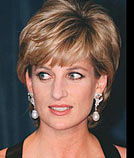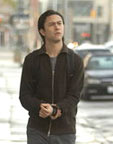 As a child, I remember hearing adults talk about the day JFK was shot, recounting with vivid detail where they were when they heard the news. I knew, even as a child, that the death of the president had been a historic tagedy, but sensed that there was an emotional resonance I couldn’t connect with; a personal aspect that I couldn’t quite grasp. Later, I learned that many people of that generation shared a common sorrow over idealism and hope they felt died that day in Dallas. And yet, it seemed that my generation had never experienced such a visceral, unifying, moment.
As a child, I remember hearing adults talk about the day JFK was shot, recounting with vivid detail where they were when they heard the news. I knew, even as a child, that the death of the president had been a historic tagedy, but sensed that there was an emotional resonance I couldn’t connect with; a personal aspect that I couldn’t quite grasp. Later, I learned that many people of that generation shared a common sorrow over idealism and hope they felt died that day in Dallas. And yet, it seemed that my generation had never experienced such a visceral, unifying, moment.
Other than distinctly recalling laying on my living room’s shag carpet watching television when I heard about the U.S. bombing of Libya in 1986, I don’t remember where I was during many of the great breaking news stories of the last three decades. But I can describe to you in exhaustive detail where I was the night Diana died, though I won’t. Simply put, I was staying at a friend’s apartment in Park Slope, Brooklyn, watching “Saturday Night Live” (Spice Girls were the guests that night).
At that point, Diana had been rushed to the hospital and had not yet passed away, but I still felt this immense despondency. I was never a devoted royals watcher, so the reaction confused me. But I stood vigil at the television, taking in every iota of information. This is, I thought to myself, my JFK moment.
Certainly, 9/11 is this generation’s most poignant JFK moment, but I think for many 30-something women, Diana’s death was the first moment that historical events collided with personal emotion. Diana was completely relatable: She had self-esteem issues; she had an ogre-ish mother-in-law; she was devoted to her children and her charitable causes; she just wanted to move on from a nasty divorce. Of course, she was no saint–understanding how to precisely manipulate the media–although some have painted her as one.
But, at that moment, none of that mattered. To many, she was the princess who helped the poor, the graceful swan in a family of stand-offish ducklings, a fiercely protective mother cub. To me, she was an unhappy woman, who had finally found love, only to be cut down. It just wasn’t fair.
For Diana to die in what finally looked to be a happy relationship after all those years of suffering evoked a tremendous amount of pathos in many people. She appealed to the romantic in all of us; hoping that there was a happily ever after out there for us. A New York Times article reported that women all over New York City were suddenly comparing their own lives to hers at the therapist’s office (inattentive husband, unsatisfactory new relationships, mean mother-in-law). In a similar way that many lost hope after JFK’s assassination, so too did many find the death of Diana devastating.
Ten years has passed and even though there is constant coverage of Princes William and Harry, the days of Diana and her fabulous gowns seem so far away. But I can still recall where I was and what I felt the night Diana died.


